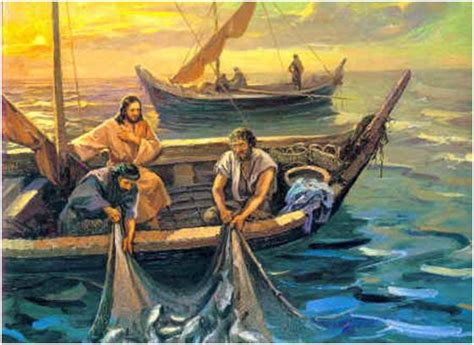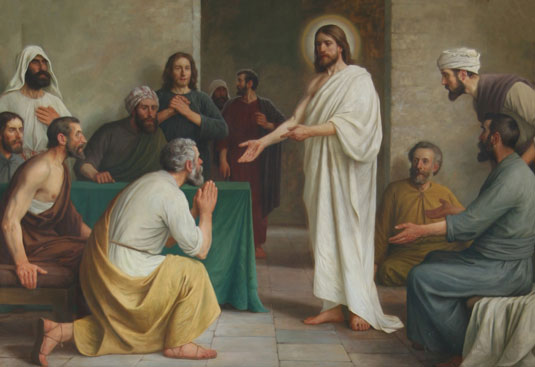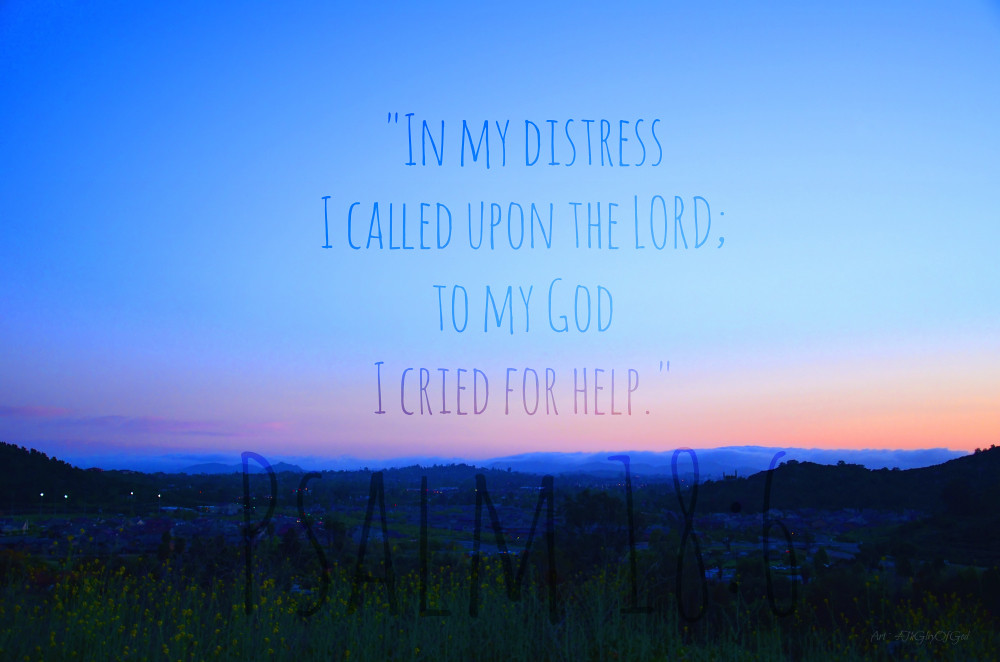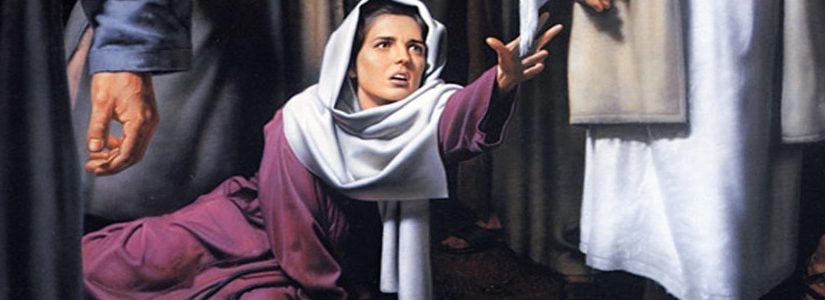Today’s readings
Our readings today, I think, are very poignant and to the point. As a pastor, I see a lot of suffering, and it breaks my heart when my parishioners are going through hard times. Whether those hard times are brought about by death or sickness, or by relationship problems, or by poverty or job circumstances, or whatever it is, those hard times can be a real test of faith. The very first words of today’s Liturgy of the Word reach out and grab us: “God did not make death, nor does he rejoice in the destruction of the living.” And perhaps we already knew that. Perhaps we know that God does not intend our death or our suffering, but the really hard thing for us is that he permits it. Why is that? Why would God permit his beloved ones to suffer so much here on earth? This is one of those sticky questions that sometimes make people doubt their faith.
When I was in seminary, I worked as a fire chaplain the last couple of years. We were called out one wintry night, just before Christmas break, to speak to some medics who had extracted a nine-year old child from a badly mangled car, only to have the child die on the way to the hospital. These medics were from a neighboring fire department, so we didn’t know them, and I didn’t have too much hope that the conversation would go well. But, to my surprise, these men did open up and expressed the frustration they felt. One of the men was Catholic and he was the one who had the task of extracting the child from the car. His enduring question was, why did this innocent child have to suffer and die? It was a long evening of conversation that really centered around faith that provided some consolation, although it could never really erase their sadness.
Which brings us to today’s Gospel. Two people reach out in very different ways to end suffering and provide healing. One is a man, who approaches Jesus and falls at his feet, begging the teacher to heal his daughter. The other is a woman, who dares not make herself known, who sneaks up behind Jesus to touch his clothing. The situations were different, but what unites them is their faith. They have faith that reaching out to Jesus in their own way will bring them the healing they desire.
And there was a pretty serious leap of faith involved for the hemorrhaging woman. Touch was her enemy. She had suffered much at the hands of many doctors. Not only have their ministrations failed to heal her, but they have also left her penniless. And to touch anyone in her state of ritual impurity makes them ritually unclean too. So she is totally marginalized: she is a woman in a patriarchal society, afflicted by an enduring and debilitating illness, she has no money to take care of herself, and she is unable to be part of the community or participate in worship. Things could not have been worse. Finding the courage to reach out to Jesus, even in her impure state, she is healed by her faith.
Now please note that that same faith was lacking in the people who were attending to Jairus’s daughter. Even if they believed that Jesus could cure her illness, she is now dead, and so his assertion that she is merely “sleeping” meets with ridicule and scorn. So Jesus has to throw out the faithless ones so that they would no longer be an obstacle. The child cannot reach out to Jesus so he reaches out to her, taking her hand, and raising her up.
So it’s as simple as that. An act of faith on the part of the hemorrhaging woman and the synagogue official provide healing and restore life. But how realistically does that match our experience? I am guessing that those medics threw up a prayer or two in addition to all of the life-saving actions they performed on that nine-year old when he was in the ambulance with them, but the boy still died. How many of us have prayed faithfully, constantly, only to be met by seemingly deaf ears? We don’t even have the same opportunity as Jairus and the hemorrhaging woman. We can’t reach out and touch Jesus in the flesh. So I would never stand here and tell you that one simple act of faith is all it takes to make all your problems go away. I always say that faith is not a magic wand.
But I will also say this: as I have walked with people who have suffered, those who have reached out to Jesus in faith have not gone unrewarded. Maybe their suffering continued in some way, or even in some cases got worse, but in Christ they found the strength to walk through it with dignity and find peace. Maybe Jesus won’t always stop the bleeding of our hurts and inadequacies and woundedness. But through his own blood, he will always redeem us. We who are disciples need to make those acts of faith if we are to live what we believe. For those medics I spent the evening with, the conversation of faith didn’t bring the boy back, but it did provide them with healing and peace and a sense that in God’s time, all would be made right.
I am struck by the Eucharistic imagery at the end of today’s Gospel. Jesus comes to the home of Jairus and finds his daughter asleep in death. He reaches out to her, touches her, and raises her up. Then he instructs those around her to give her something to eat. We gather for this Eucharistic banquet today and Jesus comes to us, finding us asleep in the death of our sins. Because we are dead in our sins, we can hardly reach out to touch our Lord, but he reaches out to us. He takes our hands, raises us up, and gives us something to eat.
We come to the Eucharist today with our lives in various stages of grace and various stages of disrepair. At the Table of the Lord, we offer our lives and our suffering and our pain. We bring our faith, wherever we are on the journey, and reach out in that faith to touch the body of our Lord. We approach the Cup of Life, and whatever emptiness is in us is filled up with grace and healing love, poured out in the blood of Christ. As we go forth, glorifying the Lord by our lives this day, all of our problems may very well stay with us, remaining unresolved at least to our satisfaction. Our suffering and pain may very well be with us still. But in our faith, perhaps they can be transformed, or at least maybe we can be transformed so that we can move through that suffering and pain with dignity and find peace. And as we go forth, perhaps we can hear our Lord saying to us the same words he said to the woman with the hemorrhage: go in peace, your faith has saved you.






You must be logged in to post a comment.